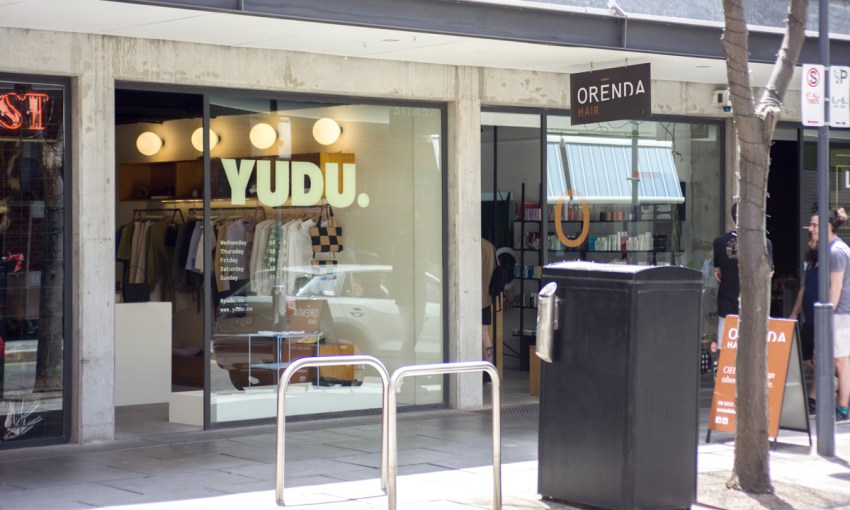Rundle Street East might be known for its hospo haunts, but it’s also the perfect place for the clued-in retail customer – hosting a roster of ethical and sustainable traders, spanning fashion, food and fine jewellery.
The considerate consumer’s guide to Rundle Street East
Yudu
2/4-10 Ebenezer Place
As a true testament to bespoke creation, Sarah and Rob Scammell began crafting sustainable leather goods in their back garage under the name Stentorian Leather.
In 2020 they leapt to open a shopfront, and while Sarah tells CityMag this was not the retail trend at the time, going against the grain is advised when crafting leather goods.
Two years on, the pair have rebranded to Yudu and, despite their expansion, still focus on local and sustainable craft to create unique, well-designed bags and accessories.
“The intention being that the pieces bought from Yudu are looked after and used for many years to come,” Sarah says.
Connect:
Website
Facebook
Instagram
Midwest Trader
1/4-10 Ebenezer Place
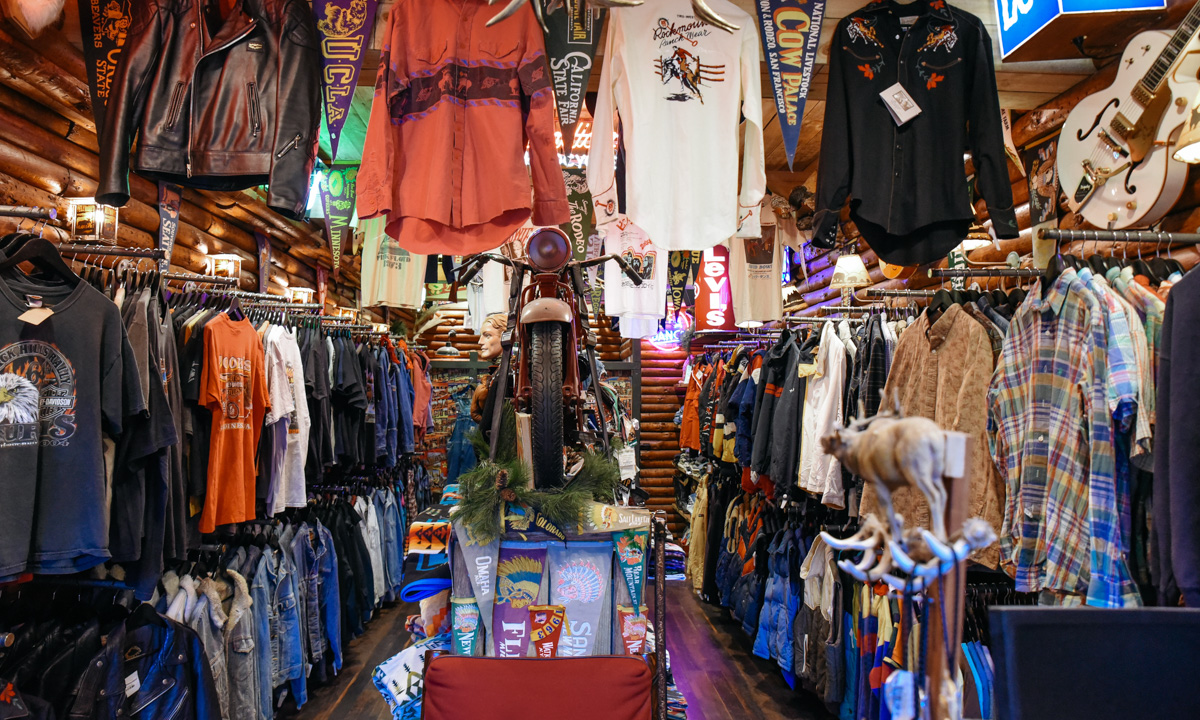
Kate Tomkins and her husband Jad have been stomping around the East End for more than 30 years, based out of their flagship vintage store, Midwest Trader.
The store is one of many second-hand stores decorating this part of town.
Midwest Trader’s ethos is quality over quantity – always.
Kate says you can see this in the Red Wing boot range – a collection they stock exclusively, made with quality leather and hand-crafted soles, able to outlast any other shoe in your wardrobe.
If you’re not in need of a pair of boots, Midwest Trader also stocks a range of heritage brands while specialising in recycled and vintage denim jeans, jackets and shirts.
An enthusiasm for restoration ensures quality products from Lee, Levi’s, and Wrangler, but, as Kate tells CityMag, this isn’t solely because of her passion for heritage brands.
“As a mother, slow fashion and recycled vintage fashion is very important to the way we live our lives for the environment and future generations,” she says.
Connect:
Website
Facebook
Instagram
Cocina Comida
16 Ebenezer Place
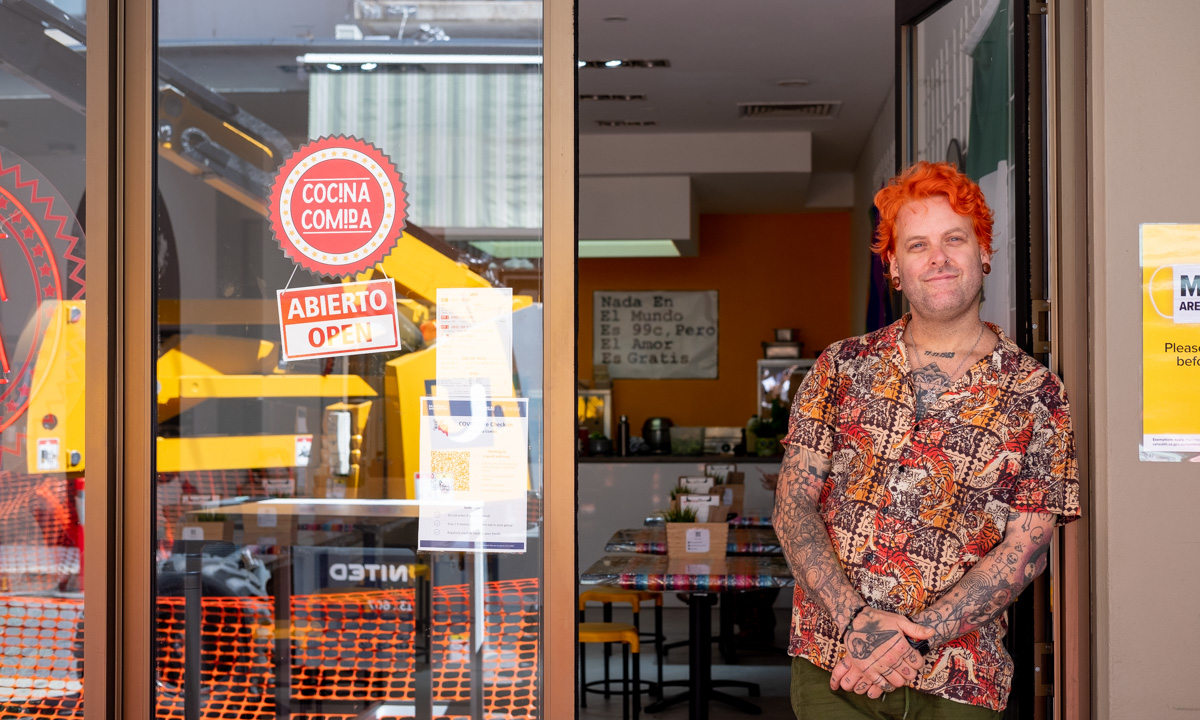
Reuben Williamson of Adelaide’s reigning vegan Mexican haunt, Cocina Comida, thinks vegans get a bad rap.
An ecological conscience is at the core of his business, but Reuben doesn’t want to guilt anyone. Instead, he aims to have a soft influence in the realm of sustainability, by putting effort into limiting his products’ waste and use of plastic.
Cocina Comida’s offering includes salsas, sauces and meatless ‘meats’ – which are made in varying forms, from jackfruit ‘pork’ to seitan ‘chicken’.
While for some meat alternatives will prompt a customer’s quick exit from the store, Reuben is seeing a shift in consumer attitudes.
“I have a lot of people that come in that aren’t vegan and don’t realise that it is a vegan restaurant, some of them come in several times before realising,” he says.
Reuben says those people now come to him for their “meat-free” days, stopping by to pick out something from his newly updated lunch menu.
Connect:
Website
Facebook
Instagram
Leonard St.
22 Ebenezer Place
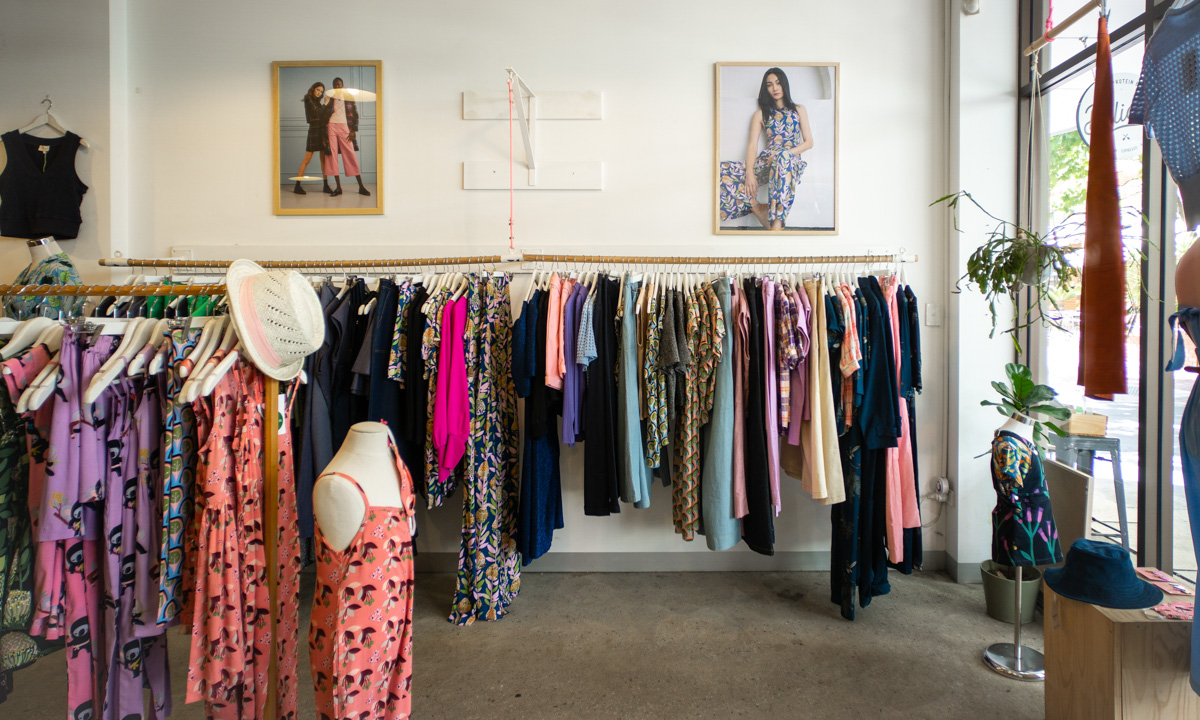
Amanda McCarthy launched her Adelaide bricks-and-mortar store in 2015, following Leonard St.’s success in her hometown of Melbourne.
Her brand is what you’d expect to see from Melbourne, too – a small-batch fashion boutique with one aim: make the ethical accessible.
After inspecting a series of factories, Amanda landed on a Bali-based manufacturer that upholds a standard often neglected by big brands as they strive to mass-produce.
While fast fashion still dictates the majority of her industry, Amanda tells CityMag she has no desire to chase trends.
“I’m just trying to ethically design products that will last a lifetime,” she says.
In addition to Amanda’s commitment to ethical making, her label keeps waste to a minimum by transforming offcuts from her timeless designs into lavender bags, tote bags and scrunchies.
Connect:
Website
Facebook
Instagram
Utopian Creations
20 Ebenezer Place
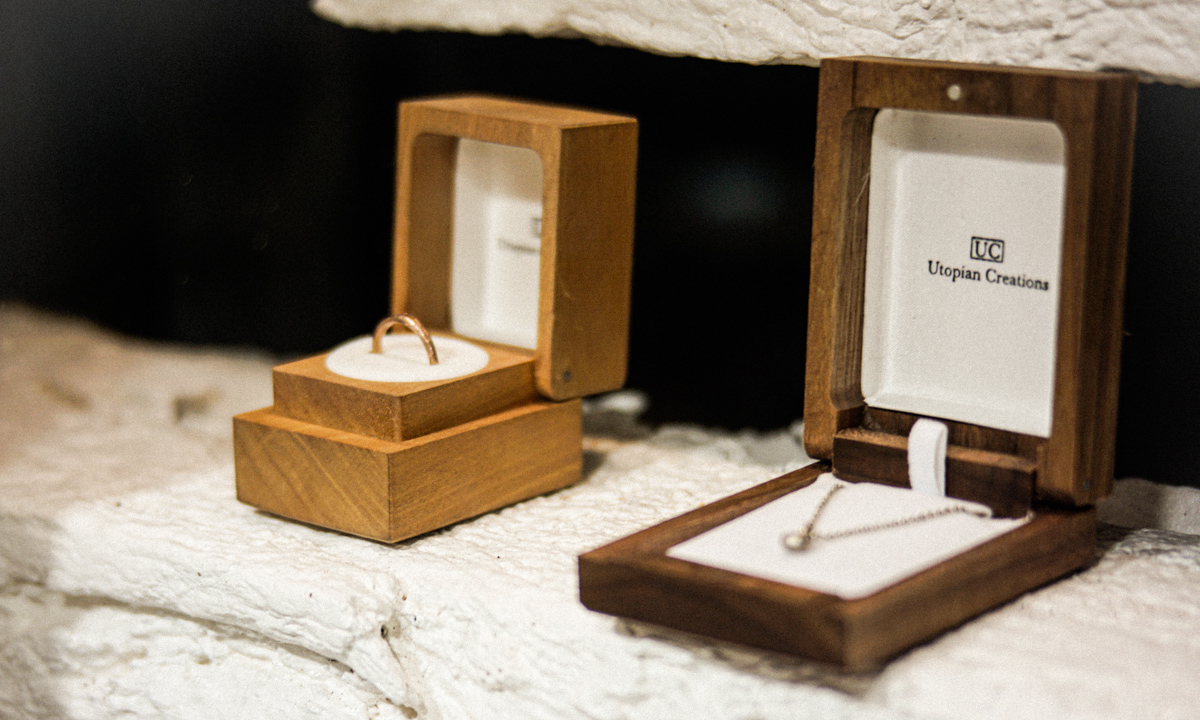
During a stint in England as a jeweller, Ben Manning saw a lack of decently made jewellery.
With a desire to know where the materials of his craft came from, his return to Adelaide in 2003 saw the founding of Utopian Creations.
Through the business, Ben produces pieces that each have a traceable origin.
Due to the handmade nature of his work, Utopian Creation’s jewellery takes about six to eight weeks to make. It’s time obviously well spent, as Utopian Creation jewellery is made to be passed down rather than thrown away.
Connect:
Website
Facebook
Instagram



